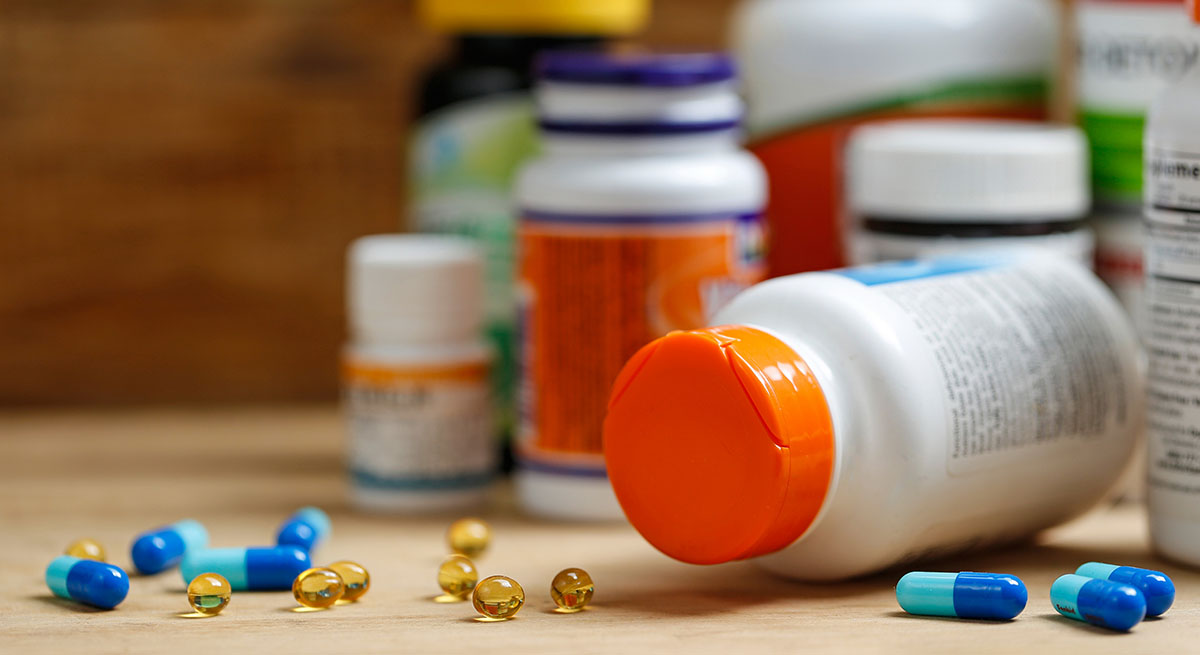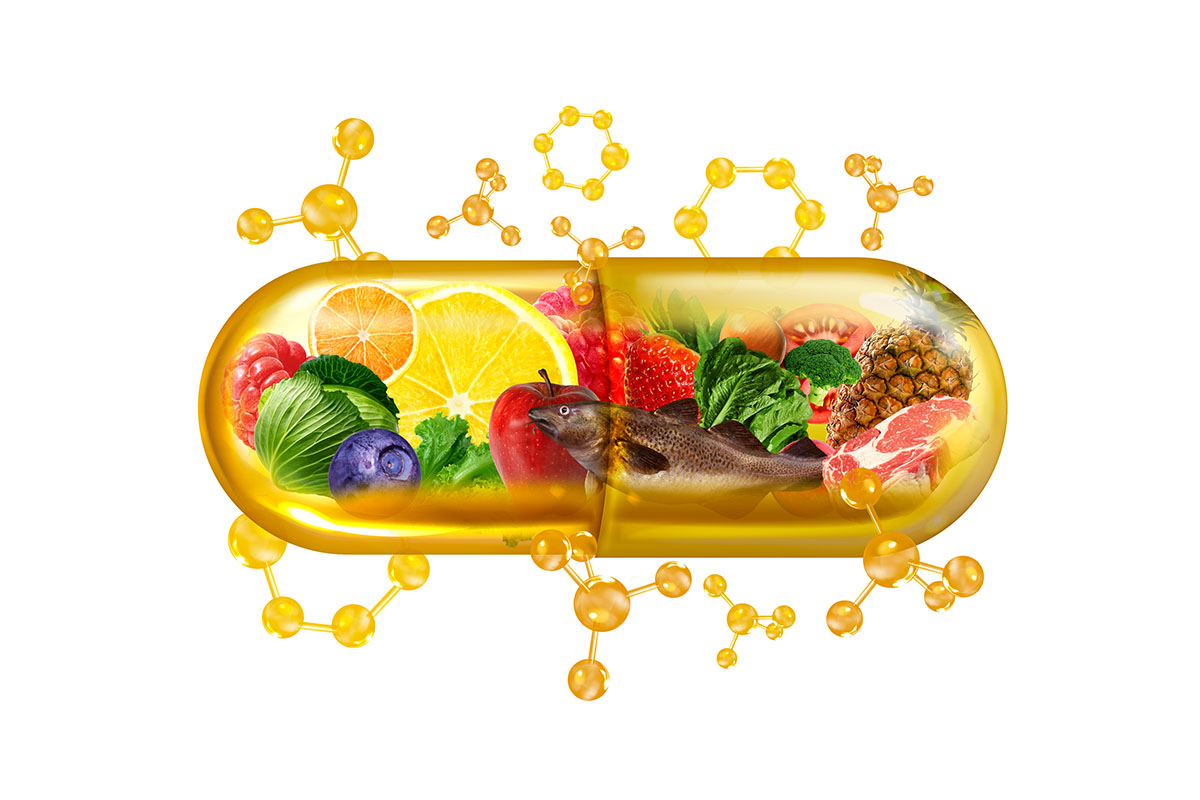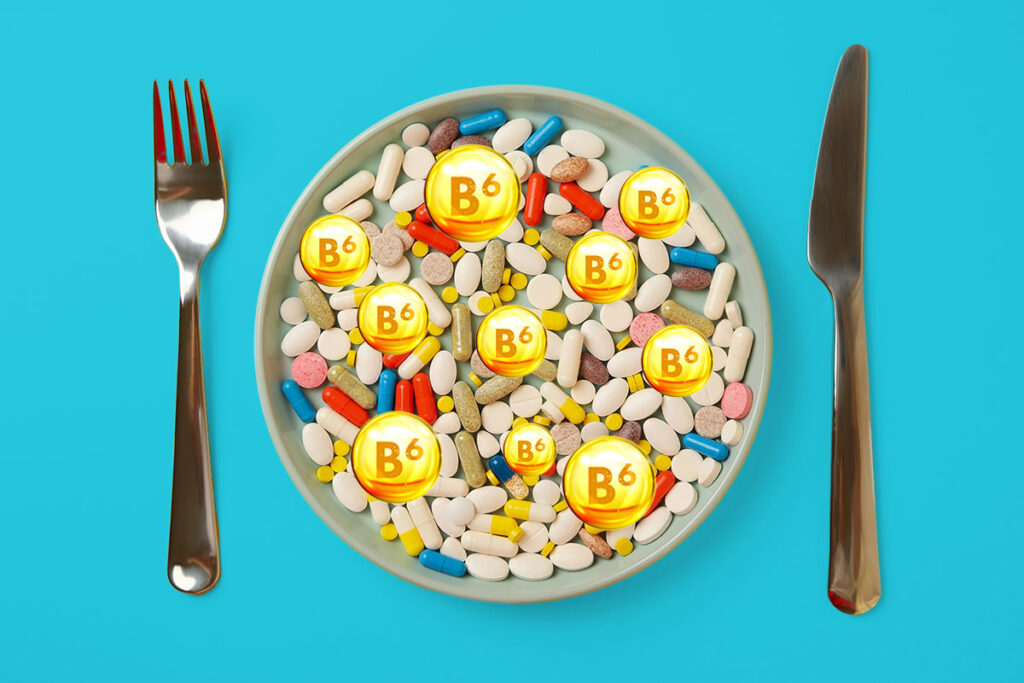No, and Here’s Why You Should Care About Vitamin Toxicity
If you’ve come across the recent news articles about Vitamin B6 causing toxicity symptoms and a well-known brand of supplements being in the centre of all this attention, you might be wondering — is this sensationalism, or is it really possible for a simple vitamin to cause harm?
Let’s get this straight.
Is it fake news? Absolutely not.
Vitamin B6 toxicity is very real – and it’s a wake-up call most people didn’t see coming.
Wait, You Can Get Sick from Too Much Vitamin?
Yes.

While we’ve been taught to fear vitamin deficiency, the other extreme — vitamin toxicity — is rarely discussed. But in reality, more is not always better when it comes to vitamins.
Recent reports, particularly from Australia, have uncovered cases where people experienced serious nerve damage (also known as peripheral neuropathy) from high-dose vitamin B6 supplements. Symptoms include:
- Numbness or tingling in the hands and feet
- Loss of coordination or balance
- Fatigue and nausea
- Sensitivity to sunlight
- In severe cases, long-term nerve damage
These symptoms can persist for months even after stopping the supplement, which is shocking, considering vitamin B6 is water-soluble and usually excreted in urine.
But here’s the catch: vitamin B6 has a relatively long half-life and can build up when taken in large doses over time.
But It’s Not Just B6 — Other Vitamins Can Be Toxic Too

Let’s talk about other common culprits of vitamin overdose and their common symptoms of toxicity:
Vitamin A (fat-soluble)
Liver damage, blurred vision, bone pain, birth defects during pregnancy (Olson et al., 2023)
Vitamin D (fat-soluble)
High calcium levels, kidney stones, nausea, and confusion (Vitamin D Fact Sheet for Consumers)
Vitamin E (fat-soluble)
Increased risk of bleeding, especially when taken with blood thinners (Vitamin E Fact Sheet for Health Professionals)
Niacin (B3)
Skin flushing, liver toxicity at high doses (Niacin Fact Sheet for Health Professionals)
So, Should I Still Take Supplements?

Before popping that multi-vitamin, ask yourself these questions:
1. What is the recommended daily intake (RDI) or upper daily limit for this vitamin?
- For Vitamin B6, the recommended upper intake level is 100 mg/day for adults.
- Many supplements exceed this, especially when taken in combination with energy drinks or other fortified products.
*Fun fact: Recommended daily intakes differ between individuals depending on age, gender and daily needs due to different diet, lifestyle, occupation and health status. But Tolerable Upper Intake Level (UL) is the level above which toxicity or side effects have been observed in studies.
2. Is it already found in my daily diet?
- B6 is present in bananas, poultry, fish, fortified cereals, potatoes, and more.
- If you’re eating a relatively balanced diet, chances are you’re already getting enough.
*Fun fact: Tocotrienols is rarely found in food, despite Vitamin E tocopherol being one of the most abundant vitamin in vegetable oils
3. Does it accumulate in the body?
- Fat-soluble vitamins (A, D, E, K) are stored in fat and liver, and build up over time.
- Some water-soluble vitamins like B6 can still accumulate due to long half-lives (it takes 2-4 weeks to eliminate half the ingested dose of B6 from the body)
*Fun fact: Vitamin B6 has a half-life of 2-4 weeks, meaning it takes 2-4 weeks to eliminate half the ingested amount of vitamin B6 from the body. That’s really long, compared to tocotrienols which has a half-life of 2-4 hours.
4. When is supplementation actually needed?
Consider supplementing if:
- You have low appetite, are recovering from surgery, or suffer from malabsorption issues (e.g. celiac disease).
- You follow a vegetarian or vegan diet (which may lack B12, iron, or omega-3s).
- A blood test or health check reveals a nutrient deficiency.
- You’re pregnant or breastfeeding (consult your healthcare provider first).
- The nutrient is not easily obtained from your daily diet and population studies have revealed high prevalence of deficiency
*Fun fact: Did you know that Malaysia has a high prevalence of Vitamin D deficiency? Despite being a tropical country with healthy dose of sunshine, studies show that 60-70% of Malaysians are deficient in Vitamin D.
Hidden Dangers: Double Dosing Without Knowing
Many people unknowingly exceed vitamin limits by taking multiple supplements with overlapping ingredients.
Imagine this:
- You take a multivitamin,
- Add a “beauty supplement” for hair and skin,
- Top up with an energy drink — all in a day.
The result? You’ve potentially tripled your vitamin B6 intake, without even realizing it.
So, How Can I Avoid Vitamin Toxicity?

✅ Read labels – Know what and how much you’re taking.
✅ Stick to one good supplement – Don’t stack products unless advised.
✅ Review your diet – You might not need a supplement at all.
✅ Be cautious with “megadoses” or “super-potent” claims – More isn’t always better.
✅ Talk to your doctor – Especially if you’re on medication or managing a health condition.
Final Thought
The recent news isn’t a reason to fear all vitamins — but it is a reason to stop treating supplements like harmless boosters. Vitamins play a powerful role in your body, and like any powerful tool, they need to be used wisely.
So next time you reach for that supplement bottle, ask yourself: “Do I really need this?”
Your nerves (and liver, and kidneys…) will thank you.
Disclaimer: This blog post is for educational purposes only. Always consult a healthcare professional before starting or stopping any supplement.
References:
https://www.abc.net.au/news/2025-06-28/tga-takes-action-over-b6-toxicity/105470210



